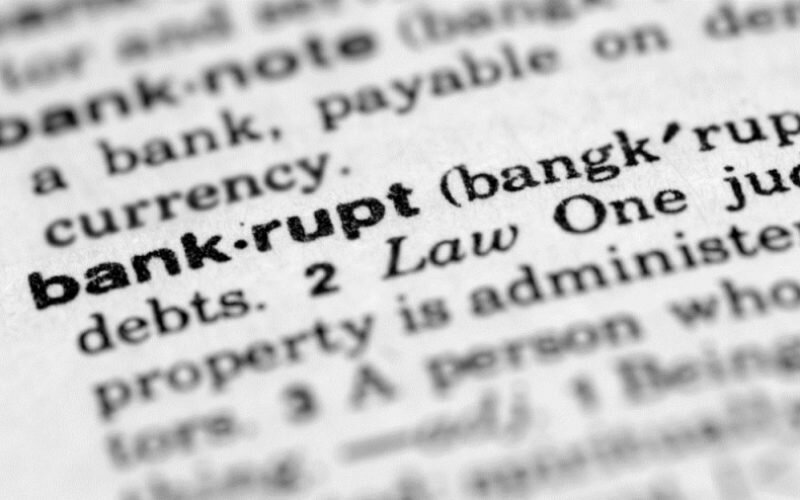No matter what country you reside in, bankruptcy is terrible to face. Whether you are an individual or a business owner who is filing for bankruptcy, you are still subject to the difficulty of letting go of something that you built for a long time. Also, you are still governed by the bankruptcy laws of the country you reside.
Different countries have different laws when it comes to bankruptcy. Quebec has its way of determining people and businesses that are at risk of going bankrupt. It also has some exceptions for individuals who meet certain conditions.
Bankruptcy Defined
In Quebec, under the Bankruptcy and Insolvency Act, bankruptcy is the legal process where an individual is cleared from his or her financial obligations and debts. When you file for bankruptcy in Quebec, a trustee will manage the property liquidation, and you are required to adhere to certain tax obligations.
Bankruptcy in Quebec
Canadian economists were alarmed when statistics show that households were incurring too much debt. Residents owed $3.33 for each dollar they earn. Canadians are more eager to borrow money, but fail to think about the consequences of their willingness to incur debt. If people do not take control of their borrowing habits, they may be the next ones to file for bankruptcy.
Bankruptcy in Quebec is for people who have no means to pay for their debts. Their income is not sufficient to meet their daily needs and repay their creditors. The process for filing and declaring bankruptcy allows Quebec residents to start clean and to eliminate the burden of:
- High interest rates
- Numerous monthly payments
- Persistent calls from debt collectors
Bankruptcy Risks
Financial problems are the primary cause why individuals and businesses file for bankruptcy. It is best to watch out for them to avoid the worst-case scenario. Some of the warning signs you might be heading towards bankruptcy are:
- You have too many maxed out credit cards.
- You consistently miss loan or mortgage payments.
- You always receive calls from various collection agents.
- You are using credit card advances to pay your bills.
- Legal actions against you are already starting.
The best way to avoid bankruptcy is to see the warning signs and prevent them from getting worse. If you notice these red flags, you can seek help from your legal representative.
Bankruptcy Filing Process
Understanding how bankruptcy works in Quebec is essential. It gives you an idea on how to go about the filing process. Here is a brief guide on filing for bankruptcy:
- To qualify for bankruptcy, you should have at least accumulated unsecured debt amounting to $1,000.
- If you are qualified, you can speak with a bankruptcy trustee. Ensure that the trustee has the license and experience to do so.
- You must submit required documents to the said trustee for verification and filing purposes. These requirements may include:
- Credit card bills or other proof of your debt
- Income statements or other evidence of your earnings
- List of assets
- Other required documents or forms
- The trustee will create a trust where all your assets will be deposited. However, some assets are exempted from this procedure because they might be essential to your daily survival or they might be necessary for you to make a living. These exemptions are:
- Clothing, food, and other basic necessities
- Essential household furnishings with value of not more than $6,000
- Financial support awarded due to adjudication
- Properties donated or inherited that were declared as exempt by the original owner
- Tools necessary for your work or profession
- Once the trust is set up, the trustee will then auction off your assets. He or she will ensure that your creditors are paid accordingly.
- After nine months of filing, your bankruptcy is cleared. Clearance is given when you, as a debtor, met all of your financial obligations to your creditors.
Your debt is erased once your bankruptcy filing discharged.
Cost of Bankruptcy in Quebec
When you file for bankruptcy in Quebec, you are subjected to different expenses that are necessary and required by law:
- You are expected to contribute to the bankruptcy estate for:
- Administrative bankruptcy costs
- Court and litigation fees
- Government documentation and filing fees
- Mailing costs
- You are required to pay for a portion of the surplus income. This type of income is usually government-defined into an estate. If you and your household earn over the monthly limit, you lose part of the earnings more than the said limit.
- You lose your ownership of your non-exempt properties and assets.
- You lose the GST credits and tax refunds you would typically receive within the bankruptcy period.
- You will lose any bonuses you receive while you are in your bankruptcy period. When you inherit money or when you win the lottery during your bankruptcy period, the proceeds will go straight to the trustee.
The amount you are required to pay is dependent on several factors such as your monthly income, your household size, and your assets. The cost of bankruptcy in Quebec is quite high. Therefore, you must do your best to avoid it. If you need help seek advice from a lawyer like the one here.
Therefore, you must do your best to avoid it. If you need help seek advice from a lawyer like the one here.
Bella Flanagan
Bella Flanagan has dedicated much of her life to law, and her pieces as a writer are imbued with her wisdom obtained from over 20 years of experience in business. Bella enjoys hanging out with her grandchildren when she has the free time.
About Author
Write a Comment
Only registered users can comment.











